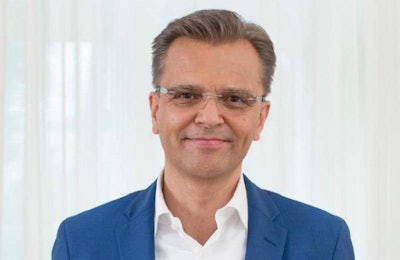
First-quarter results published by Finland-based meat firm, HKScan, reveal that its strategic transformation and turnaround process have yet to bear fruit in terms of overall financial performance.
Net sales for the first three months of 2018 were EUR411.0 million, down from EUR420.7 million in the same period of last year, reports HKScan. Overall, the firm presented a loss for the past quarter of EUR17.0 million, which compares with a loss of EUR7.0 million for January-March 2017.
HKScan attributes these results to a number of challenges relating to the ramping up of its poultry processing facility in Rauma, Finland, which resulted in the firm’s Earnings Before Interest and Taxes (EBIT) falling from zero in the first quarter of 2017 to a loss of EUR9.9 million in the three months just passed.
The Rauma facility represents a major investment for the company, and it promises to deliver a state-of-the-art facility that will significantly improve the firm’s competitiveness, as well as enabling it to deliver innovative poultry products.
According to the Group’s president, Jari Latvanen, measures to secure poultry meat deliveries to customers from Rauma over the past quarter caused additional costs, while delivery capability recovered well during the quarter.
HKScan’s regional businesses turned in mixed results. Net sales and comparable EBIT in Finland and Sweden were down in the first quarter compared to the same period of 2017, while the figures for Denmark and the Baltic States were almost unchanged.
A highlight of the past quarter for Latvanen was the finalization of an agreement for HKScan to export pork to China, with the trade scheduled to begin in the first half of this year. The move followed the signing of a trade agreement between the Chinese and Finnish authorities last year. In February, the firm announced the formation of a joint venture with Zhejiang Qinglian Food Co. Ltd. to begin sales of its premium brand omega-3 pork on the Chinese market.
Looking ahead, Latvanen highlighted a number of positive factors for HKScan’s future performance.
The firm’s cost-saving measures are on-going, and there is good progress on its previously announced strategic changes and programs to improve operational efficiency. Furthermore, there is growth in the meat market, and consumer confidence has strengthened in HKScan’s home and export markets.
Following an investigation into its business in the Baltic States in 2016, and lackluster financial performance, HKScan’s management team has undergone a number of changes, and a new strategy for growth was launched in August last year.
One month ago, HKScan announced that one of its farms will be the first in Finland to switch from imported soybean meal to home-grown pulses as the main protein ingredient in its poultry feeds.
[Current exchange rate: EUR1.00 = US$1.19]

















